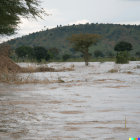Climate change poses significant challenges for the African continent, affecting ecosystems, economies, and communities. The Climate-Efficient Sustainability Programs (CESP) in Africa play a crucial role in addressing these challenges by implementing innovative strategies to enhance climate resilience. This topic explores the initiatives undertaken by CESP Africa to mitigate the impacts of climate change and foster sustainable development.
Renewable Energy Solutions: Analyzing CESP Africa’s efforts in promoting and implementing renewable energy projects to reduce carbon emissions and enhance energy security across the continent.
Community-Based Adaptation: Examining community engagement and participatory approaches employed by CESP Africa to build resilience at the local level, considering indigenous knowledge and practices.
Eco-Friendly Agriculture Practices: Investigating how CESP Africa is promoting sustainable and climate-smart agricultural practices to ensure food security while minimizing environmental impact.
Green Infrastructure Development: Assessing the role of CESP Africa in the planning and implementation of green infrastructure projects, such as sustainable urban planning, reforestation, and water management.
Technology Innovation for Climate Monitoring: Exploring the use of advanced technologies and data analytics by CESP Africa for effective climate monitoring, early warning systems, and adaptation planning.
Public Awareness and Education: Discussing CESP Africa’s initiatives in raising awareness about climate change, promoting environmental education, and fostering a sense of responsibility for sustainable living.
Policy Advocacy and Collaboration: Examining how CESP Africa collaborates with governments, NGOs, and international organizations to advocate for and implement climate-friendly policies and strategies.
Measuring and Evaluating Impact: Assessing the effectiveness of CESP Africa’s programs through case studies and impact assessments, considering both short-term and long-term outcomes




